adrift on one of its own fabrication.
Andrew Card lobbied twice to replace Rumsfeld. First Lady Laura Bush joined Card's second attempt to oust the defense secretary. A colleague warned the future chairman of the Joint Chiefs of Staff U.S. Marine Corps Gen. Peter Pace, "You should not be the parrot" on Rumsfeld's shoulder. The intel division of the JCoS predicted, "violence will not only continue for the rest of this year in Iraq but increase in 2007." Despite repeated warnings of the "deteriorating situation in Iraq," Bush WH staffers drew a happy face on the war debacle.
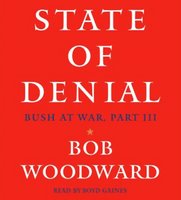 These scenes and more, according to Bob Woodward's new book, State Of Denial, provide a glimpse into the dysfunctional Bush WH.
These scenes and more, according to Bob Woodward's new book, State Of Denial, provide a glimpse into the dysfunctional Bush WH. The book has caused a buzz inside the Beltway and set off alarm bells about the allegedly national security presidency with the release of the information so close to the midterm elections. No doubt the con-apparatchiki of Faux News and friends will rush to the rescue to tidy up potential damage perhaps as early as today. A WaPo sneak peek from Friday and today's front-page article from Bob Woodward provide a provocative and sobering report on the disconnect between reality, the WH, and its disinformation propaganda. The WaPo Sept. 29 preview:
"State of Denial" adds new information about Rice's role in the Bush administration's efforts to combat terrorism in the months before the Sept. 11 attacks. That subject became a source of controversy this week after former President Bill Clinton accused "President Bush's neocons" and other Republicans of ignoring Osama bin Laden until the attacks, and Rice responded angrily to the charge.Rice got really fried over Clinton's remarks. However, the 9/11 Commission findings dispute her recent public rebuttals. Is Condi a serial denialist who cloaks herself with wild assertions when confronted with facts? Um, yeah. Five years ago...
Woodward writes that on July 10, 2001, then-CIA director George Tenet became so concerned about the communication intelligence agencies were receiving indicating that a terrorist attack was imminent that he went to the White House with counterterrorism chief J. Cofer Black -- without an appointment -- to meet with Rice, then the national security adviser. He and Black hoped the meeting would alert Rice to the urgency they felt.
But Tenet and Black felt that Rice gave them "the brush-off," according to Woodward, telling them that a plan for coherent action against bin Laden was already in the works. Woodward writes that both Tenet and Black felt the meeting was the starkest warning the White House was given about bin Laden.An action plan that the CIA didn't know seems strange. I would think that buttoned-down national security counterterrorism would utilize all possible resources including a CIA function called spying. Also odd is that Tenet wasn't part of the planning process to capture or kill Bin Laden. Why exclude the CIA?
Woodward's tale of national security advisor's Condalezza Rice's curious "brush-off" of the "starkest warning"--what was to unfold as the attacks of 9/11--resonates with Richard Clarke's insider account on the lack of attentiveness to the al Qaeda threat at 1600 Pennsylvania Avenue:
"There's a lot of blame to go around, and I probably deserve some blame, too. But on January 24th, 2001, I wrote a memo to Condoleezza Rice asking for, urgently -- underlined urgently -- a Cabinet-level meeting to deal with the impending al Qaeda attack. And that urgent memo-- wasn't acted on.
"I blame the entire Bush leadership for continuing to work on Cold War issues when they back in power in 2001. It was as though they were preserved in amber from when they left office eight years earlier. They came back. They wanted to work on the same issues right away: Iraq, Star Wars. Not new issues, the new threats that had developed over the preceding eight years."
Clarke finally got his meeting about al Qaeda in April, three months after his urgent request. But it wasn't with the president or cabinet. It was with the second-in-command in each relevant department.Woodward's Tenet story and Clarke's version of his experience reinforce that the WH's was distracted with plans geared toward invading Iraq--not fighting terrorism or getting Bin Laden:
Like former Treasury secretary Paul H. O'Neill... Clarke said some of Bush's leading advisers arrived in office determined to make war on Iraq. Nearly all of them, he said, believed Clinton had been "overly obsessed with al Qaeda."
[...]
Deputy Defense Secretary Paul D. Wolfowitz, Clarke wrote, scowled and asked, "why we are beginning by talking about this one man, bin Laden." When Clarke told him no foe but al Qaeda "poses an immediate and serious threat to the United States," Wolfowitz is said to have replied that Iraqi terrorism posed "at least as much" of a danger. FBI and CIA representatives backed Clarke in saying they had no such evidence.
"I could hardly believe," Clarke writes, that Wolfowitz pressed the "totally discredited" theory that Iraq was behind the 1993 truck bomb at the World Trade Center, "a theory that had been investigated for years and found to be totally untrue."
Wolfowitz... cited statements by CIA Director George J. Tenet and Secretary of State Colin L. Powell affirming that Iraq once trained al Qaeda operatives in bomb making and document forgery.
"Given what George Tenet and Colin Powell have said publicly about Iraqi links to al Qaeda, I just find it hard to understand how Dick Clarke can be so dismissive of the possibility that there were links between them," Wolfowitz said.
Like Tenet, Clarke was a Clinton holdover who faced initial skepticism from Bush loyalists....
In the first minutes after hijacked planes struck the World Trade Center towers on Sept. 11, Rice placed Clarke in her chair in the Situation Room and asked him to direct the government's crisis response. The next day, Clarke returned to find the subject changed to Iraq.
"I realized with almost a sharp physical pain that [Defense Secretary Donald H.] Rumsfeld and Wolfowitz were going to try to take advantage of this national tragedy to promote their agenda about Iraq," he writes.
In discussions of military strikes, "Secretary Rumsfeld complained that there were no decent targets for bombing in Afghanistan" -- where al Qaeda was based under protection of the Taliban -- "and that we should consider bombing Iraq."In Plan Of Attack, Woodward's 2004 book, he recounted:
... just five days after Sept. 11, President Bush indicated to National Security Adviser Condoleezza Rice that while he had to do Afghanistan first, he was also determined to do something about Saddam Hussein.
”There's some pressure to go after Saddam Hussein. Don Rumsfeld has said, ‘This is an opportunity to take out Saddam Hussein, perhaps. We should consider it.’ And the president says to Condi Rice meeting head to head, ‘We won't do Iraq now.’ But it is a question we're gonna have to return to,’” says Woodward.
“And there's this low boil on Iraq until the day before Thanksgiving, Nov. 21, 2001. This is 72 days after 9/11. This is part of this secret history. President Bush, after a National Security Council meeting, takes Don Rumsfeld aside, collars him physically, and takes him into a little cubbyhole room and closes the door and says, ‘What have you got in terms of plans for Iraq? What is the status of the war plan? I want you to get on it. I want you to keep it secret.’"
Woodward says immediately after that, Rumsfeld told Gen. Tommy Franks to develop a war plan to invade Iraq and remove Saddam - and that Rumsfeld gave Franks a blank check.In State of Denial, Woodward depicts a "vast difference between what the White House and Pentagon had known about the situation in Iraq and what they were saying publicly." No matter how much Bush repeated that Iraq was "turning the corner" and Cheney asserted that the Iraqi insurgency was in its "last throes," reality just would not bend to their abracadabra.
Haven't we already learned that Bush spin doesn't jibe with reality? Rummy assured that there were WMDs "in the area around Tikrit and Baghdad and east, west, south and north somewhat." Fear-mongering to invade Iraq culiminated in an iconic phrase from Condi, a smoking gun that could blossom into a "mushroom cloud." National security expertise dispensed by the Bush Administration was a WMD mirage that vanished with another iconic statement from U.S. weapons inspector David Kay, "We were wrong." Poof! When the smoke of "shock and awe" cleared, the picture we can all vividly see in Iraq discloses death, carnage, waste, the scourge of torture, lost credibility in the world, war profiteering, corruption, cronyism, and massive debt. Bush denial also went beyond Iraq when he told Brownie that the FEMA director was doing a "heckuva job" despite the reality of the abysmal Katrina response. Are we surprised? I'm not. So what took Watergate sleuth Bob Woodward so long to finally get to the point two books later?
Denial in the Bush WH also explains the way the Administration has handled its exposed failures and secrets. Condi Rice's forcible denial that impugned Richard Clarke and the denial of WH leakers who outed CIA operative Valerie Plame in retaliation against her husband, Joe Wilson, for having discredited the WH's exaggerations of the Iraqi threat are two examples that readily perk up from memory.
Perpetrators deny their crimes, don't they? Aren't prisons crammed with sociopaths who claim their innocence despite undeniable fact?
Turning to Rumsfeld, Woodward writes in his newest book:
A year later, Rumsfeld received an even more blunt criticism from Steve Herbits, a longtime friend who according to Woodward has served as an informal adviser to Rumsfeld since he became defense secretary. In a seven-page memo in July, 2005, entitled, "Summary of Post-Iraq Planning and Execution Problems," Herbits listed a series of questions for Rumsfeld:
* "Who made the decision and why didn't we reconstitute the Iraqi Army?"
* "Did no one realize we were going to need Iraqi security forces?"
* "Did no one anticipate the importance of stabilization and how best to achieve it?"
* "Why was the de-Baathification so wide and deep?"
He then described "Rumsfeld's style of operation," which he said was the "Haldeman model, arrogant," referring to Nixon's White House chief of staff H. R. "Bob" Haldeman. "Indecisive, contrary to popular image. Would not accept that some people in some areas were smarter than he. . . . Trusts very few people. Very, very cautious. Rubber glove syndrome---a tendency not to leave his fingerprints on decisions."
Woodward does not say how Rumsfeld responded.
Some of the highest-ranking officers serving under Rumsfeld had similar misgivings about Iraq.Scathing stuff but unsurprising. Suskind, Joe Wilson, U.S. generals, many others notable sources have opened the door to the West Wing and the Pentagon to give us a look behind the curtain of the Bush Administration. Does the nose smell sulfur? Is this where the diablo works? I may not agree with Chavez's choice of venue for his rhetoric, but I can understand as an artist the symbology of his words. Others have experienced George W. Bush, the fiery political operative with a trash mouth. The enfant terrible, Karl Rove, too. So I find Woodward's stories about Bush's dysfunctional administration more than believable--it's long over due. I may fault Woodward--for example, his delay in coming forward on the Plame affair--but I can unequivocally agree with the title of his new book.
Today Woodward writes :
On Feb. 10, 2005, two weeks after Rice became secretary of state, Zelikow presented her with a 15-page, single-spaced secret memo. "At this point Iraq remains a failed state shadowed by constant violence and undergoing revolutionary political change," Zelikow wrote.
The insurgency was "being contained militarily," but it was "quite active," leaving Iraqi civilians feeling "very insecure," Zelikow said.
U.S. officials seemed locked down in the fortified Green Zone. "Mobility of coalition officials is extremely limited, and productive government activity is constrained."
Zelikow criticized the Baghdad-centered effort, noting that "the war can certainly be lost in Baghdad, but the war can only be won in the cities and provinces outside Baghdad."
In sum, he said, the United States' effort suffered because it lacked an articulated, comprehensive, unified policy.Woodward also paints a portrait of Centcom commander Gen. Abizaid who, on one hand exclaimed, "We've got to get the [expletive] out," and then testified in March 2006, before the Senate Armed Services Committee of "a careful but upbeat picture of the situation in Iraq."
Afterward, [Abizaid] went over to see Rep. John P. Murtha in the Rayburn House Office Building. Murtha, a Pennsylvania Democrat, had introduced a resolution in Congress calling for American troops in Iraq to be "redeployed" -- the military term for returning troops overseas to their home bases -- "at the earliest practicable date."
"The war in Iraq is not going as advertised," Murtha had said. "It is a flawed policy wrapped in illusion."
Now, sitting at the round dark-wood table in the congressman's office, Abizaid, the one uniformed military commander who had been intimately involved in Iraq from the beginning and who was still at it, indicated he wanted to speak frankly. According to Murtha, Abizaid raised his hand for emphasis, held his thumb and forefinger a quarter of an inch from each other and said, "We're that far apart."With Woodward's disclosure, I suppose Abizaid is now officially part of the "cut and run" crowd that the Bush WH and the GOP frequently smear in gulping too much of the Kissinger poisoned Kool-Aid on Iraq:
The policy of "Vietnamization," turning the fight over to the South Vietnamese military, Kissinger wrote, might increase pressure to end the war because the American public wanted a quick resolution. Troop withdrawals would only encourage the enemy. "It will become harder and harder to maintain the morale of those who remain, not to speak of their mothers."
Two months after Gerson's meeting, the administration issued a 35-page "National Strategy for Victory in Iraq." It was right out of the Kissinger playbook. The only meaningful exit strategy would be victory.Problem is, the Iraqis want USA out with 60% approving of attacks on U.S. troops and "80% of Iraqis believe the US military presence in Iraq provokes more violence than it prevents." Are Kissinger and the Administration in denial that Iraq might have an opinion about its own destiny?
To riff off the book's title, is the Bush WH's state of denial a sequel? Or is our broken and corrupt Congress the sequel? Chicken or egg? Perhaps I'm thinking octagonally. The association is more likely hand and and glove, master and puppet, parrot and shoulder of a pirate.
My State Of Denial takeaway: The stakes for this year's election couldn't be more pivotal to what's next for the state of our union. Remain in dark denial or walk into the light? Without oversight, Bush WH denial will continue with its enablers in Congress and the media. And that's dangerous. 9/11 dangerous. Iraqi quagmire dangerous. Because denial buffers against the intrusion of reality, against the warnings of a "Bin Laden determined to strike in U.S.," against the sage advice of military generals such as Shinseki, against the impact of global warming, against bad news of failed policies, against acknowledging culpability, against accepting that no one is above the law. Denial keeps the Bush WH from seeing what truly needs to be done in everyone's best interest rather than for its own personal gain, self-aggrandizement, power, and political partisan advantage.
Denial kills.
UPDATE: Whoa is right!
The July 10 meeting among Rice, Tenet and Black wasn't mentioned in various investigations into the Sept. 11 attacks and Woodward wrote that Black "felt there were things the commissions wanted to know about and things they didn't want to know about."
Jamie Gorelick, a member of the Sept. 11 commission, said she checked with staff members, who told her investigators were never told about a July 10 meeting.
White House and State Department officials confirmed Friday that the July 10 meeting took place, although they took issue with the portrayal of its results....Why didn't they take issue with reporting all of the facts to the 9/11 Commission? Cover up much?
UPDATE II: Don't forget Woodward on CBS 60 Minutes airs tonight. A preview.

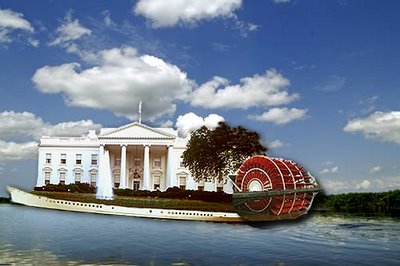







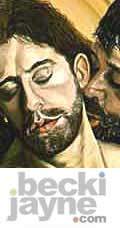
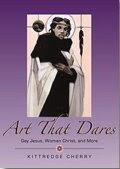
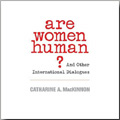
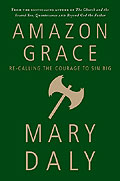









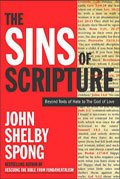

|